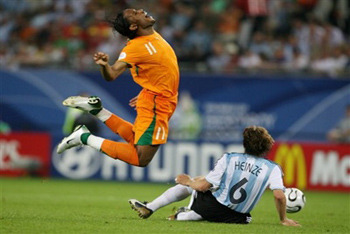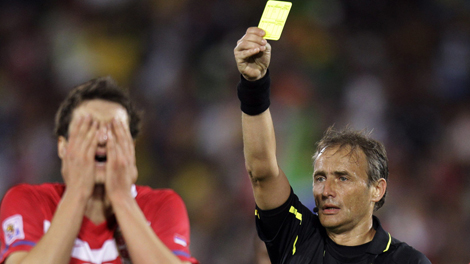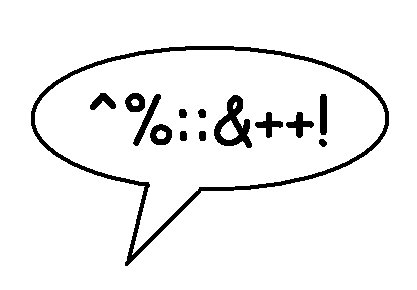Diving: Oscar Performances by Soccer Players
Soccer is one of the few sports that rewards players for being blatantly cheap and fake. Take a little nick on the foot and you are allowed if not encouraged to fall as if you got shot down by an M40 sniper rifle. And then you can get up 5 seconds later as if nothing happened.

This diving phenomenon is something that is very harmful to the sport, as players are encouraged more to be sissies instead of actual competitors. It seems to me that every soccer game I watch is now decided by (questionable) penalties, and that’s become the goal (pardon the pun): get a penalty instead of, you know, earning the goal.

Why This Happens
What are the consequences for getting caught diving? A mere yellow card. That means you can try getting away with a penalty and the worst case scenario is you get a warning, meaning the striker will have to be careful with his challenges from now on to the rest of the game. Which is worthless because strikers don’t generally try to tackle down players from the other team. The yellow card becomes a simple warning that you’ve been caught diving, and that’s not nearly enough to deter players from diving again in the future.
Of course, if you manage to trick the ref by diving (which isn’t difficult), you can easily get a yellow or even a red for the other team and a free kick or a penalty for your team. In other words, the punishment for getting caught diving is less severe than the punishment the other team will receive if you get away with it. Is it really a wonder players are doing this?
Ways This Is Being Controlled
The short answer: it’s not. Diving has been a plague to soccer for at least the last decade, and it’s only gotten worse because FIFA has been doing such a half-assed job on basically everything related to soccer. FIFA doesn’t want goal line technology, video replay or anything useful in an attempt to keep the game “pure”. Or some other nonsense.
Hockey is a thousand years ahead in this aspect. It is constantly evolving and adapting with the faster speed of players and the increased chances of getting injured. There’s also a lot more support with technology and even human arbitration than in soccer.
While hockey has 2 referees for the rink, 2 linesmen and 2 goal judges, soccer has 1 referee to make calls for the entire field (which has an area 4-5 times larger than a hockey rink) as well as 2 linesmen. Hockey also has the benefit of video replay which soccer refuses to implement. When any fan watching the game through television can tell you when a bad call has been made a few seconds after it occurred and you still choose not to use video replay, then you’ve got problems.
Hockey takes this one step further: in the off chance that they do miss a call in a game, they will analyze the play and give a ban or a fine to a player in the hopes of deterring this kind of behaviour. These bans are getting stricter now as well, though they still need to work on giving more consistent bans (sometimes the same foul will get a very different number of games banned). Soccer? It doesn’t do this except when a player swears or gives a foul gesture.

Diving still occurs in hockey, though, and some really questionable calls have been made in recent years, like when San Jose’s Devin Setoguchi slashed Detroit’s Johann Franzen in the 2010 playoffs and Franzen got the penalty. Even so, they’re a rarity and clearly hockey is trying to keep them to a minimum. Human error is inevitable, but so much easier to prevent and correct when you have video footage of the incident.
Soccer’s philosophy is almost completely backwards in this sense because FIFA wants to keep human error as a way of creating an outcome for the game. Some speculate this is to allow games to be fixed or gambling to occur, but whether the reason is money or sheer stupidity is beside the point. They’re ruining the game by stopping its advancement and preventing it from adapting to modern times.
Even though soccer is my favourite sport, I have to concede that hockey is a lot more entertaining to watch simply because it keeps evolving, maintaining its integrity while keeping it competitive and dynamic. Meanwhile, soccer is stuck in the dark ages.
How to Fix This
It can’t be completely corrected, but infringements like diving can be kept to a minimum with simple things like video replay, adding another referee, and actually punishing these divers.
A general concern is that the video replay will take too much time to resolve the issue. Most of the time this is not the case.
When watching the 2010 World Cup, it was pretty clear that Lampard had scored against Germany and that the first goal in Argentina vs. Mexico was offside. We knew this immediately after the fact (in fact some of the Mexican players were complaining to the referee as they watched the replay on the stadium’s big screen – before the Argentinian players had even finished celebrating).
In hockey most video replays are resolved in less than 2 minutes, though some can take up to 10. Even so, there are many things that take up a lot of time in soccer: celebrations, questioning calls, scrums and diving itself (and by diving I mean diving, pretending to be injured, getting dramatically carried off on a stretcher and then returning a few minutes later – this eats up a lot of time).
You can easily resolve this and do what most sports do: stop time when the play is not continuing. It’s really simple: get a stopwatch

If the ball goes out of play, stop time. When it goes back in play, start it again. If there’s a foul, stop time and be wary if the players try to do a quick free kick, because then you’ll need to start it again. That’s about as complicated as it gets
Oh and sometimes a play may have to be restarted because the ref sees an infringement. If that happens, simply go back to the time that it was at previously. Anyone with a computer or smartphone can do that. It’s not hard. It may change the dynamics of the game a bit too as players rush and give their all as it nears 90, but is that a bad thing?
You could also just keep playing until the ball gets knocked out of play or in no man’s land after the 90, like we currently do, but at least stop time from ticking when someone is just fetching the ball. Like why is that even a deciding factor? Seriously.
Parting Thoughts
Many people (mostly Americans) complain that soccer isn’t a manly sport and football is much better. To them I say, why do you call it football when 90% of the time you’re running around with the ball in your hands? As for manly, well I guess they’re right. I mean American football is a sport where you are excused for grabbing other large, sweaty men in areas unknown and jumping on top of each other all for a ball (or balls). You can’t get manlier than that.
Despite their ignorance they do have a hint of truth behind their statements. Soccer is lacking in competitiveness and integrity because of the way FIFA is dealing with divers and how they refuse to include technology in the game. It’s turning soccer from the beautiful game into a complete joke.
Let’s hope it doesn’t stay that way.






